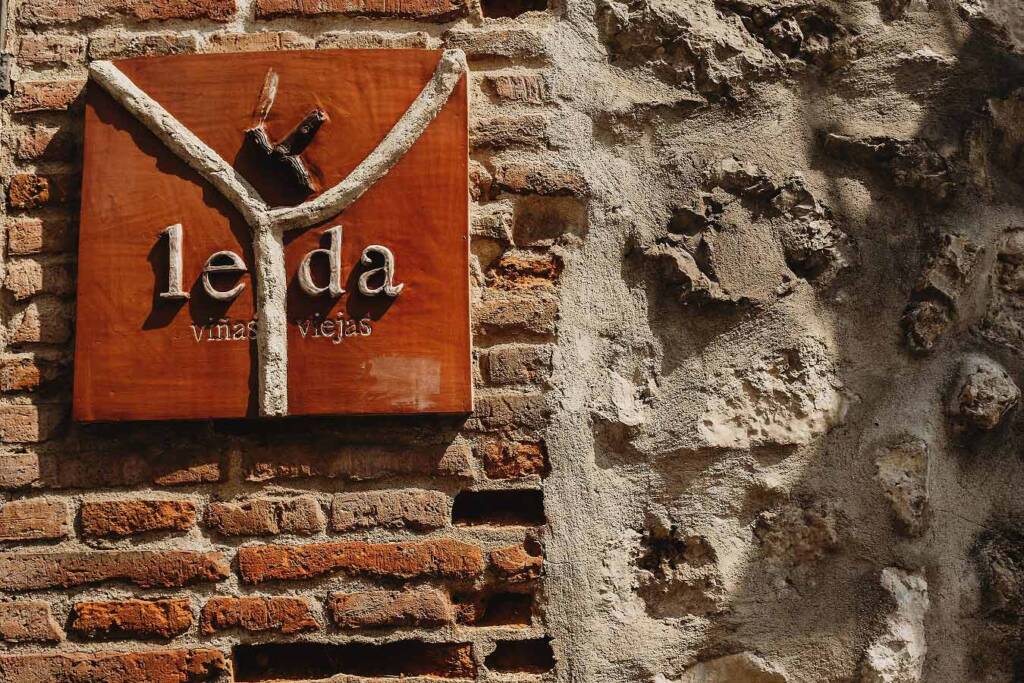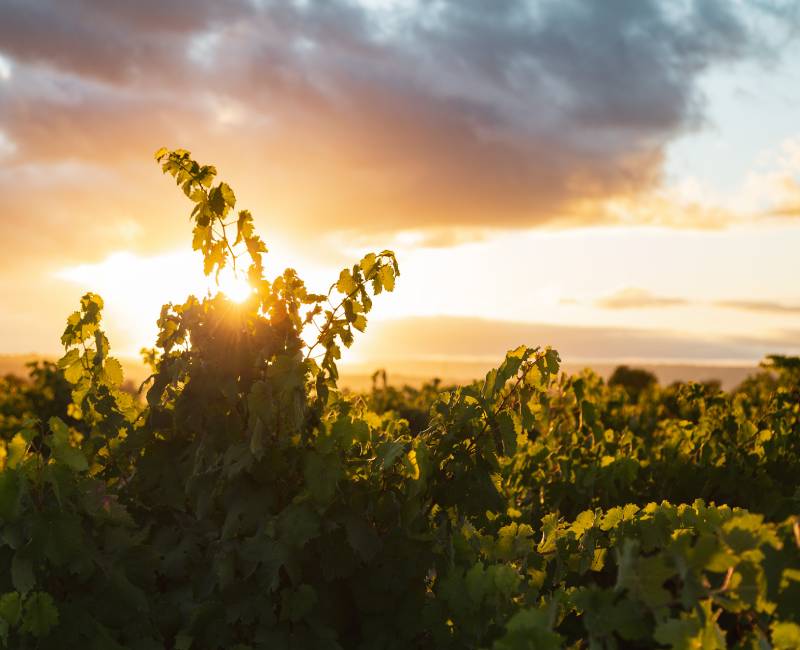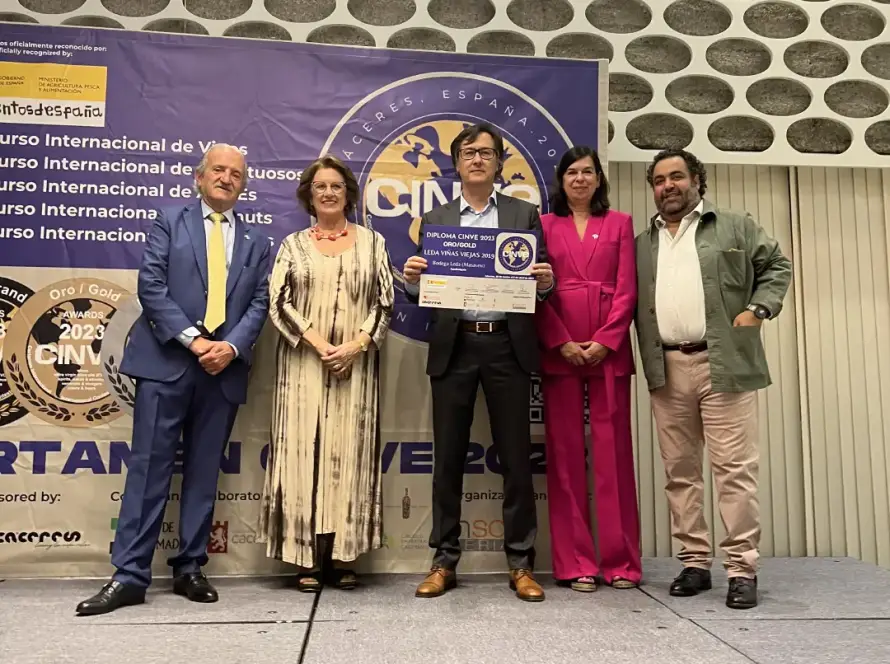Leda Winery, located in Tudela de Duero, Valladolid, began in 2019 — the year the winery and its process were certified — a strong commitment to organic farming, obtaining that same year the certification for the production and elaboration of organic wines. After three years, its registration in organic farming — as a reflection of a philosophy based on the utmost respect for the vineyard — has been rewarded with the launch of “Más de Leda 2019 Ecológico” and “Leda Viñas Viejas 2019 Ecológico”, two excellent wines crafted with absolute respect for the environment and the vineyard. In addition to More of Leda and Leda Viñas Viejas, Leda Winery produces a third label, “Guarda de Leda,” which will be released to the market in 2023 with the same organic certification.
Starting with the 2019 vintage, all wines produced by the Valladolid-based winery will feature the mention and seal of organic wine on their labels. “At Leda, we have always committed to sustainability, which is why we are especially pleased and proud to have already released our wines with the organic certification, which attests to the environmental commitment we have at Masaveu Wineries,” explains José Masaveu, General Manager of this wine group. Speaking of Leda is speaking of unique and extraordinary wines that reflect power and personality. This winery, which has 350 barrels distributed across three different underground cellars, produces highly expressive wines under the multiterroir concept and with the gourmet seal that characterizes Masaveu Wineries’ creations. 100% of the vineyards supplying Leda wines are cultivated with Tempranillo, coming from different locations in Castilla y León belonging to Ribera del Duero, Toro, and Cigales.

The 20 hectares of old vineyards from which Leda wines are sourced were certified as organic between 2010 and 2013. This means that only organic products are used, with herbicides, pesticides, and fungicides completely prohibited. The plants and grapes from these vineyards undergo strict controls to ensure and guarantee their organic character.
Specifically, More of Leda 2019 Organic is a multi-terroir wine — elegant and easy to drink — that is highly expressive and powerful, showcasing the diverse origins of the Tempranillo variety in Castilla y León. More of Leda 2019 was bottled in June 2022 after spending 15 months in oak barrels, 80% French and 20% American. With a bright and intense cherry-red color, it offers aromas of ripe red fruits accompanied by subtle notes of balsamic tobacco that lend it great complexity. On the palate, it displays flavors of red fruits and has a long, silky finish. From this first organic vintage, 34,392 bottles of 0.75 liters and 1,000 magnum bottles have been produced.
For its part, Leda Viñas Viejas 2019 Organic comes from vineyards between 70 and 100 years old, spread along the Duero Valley, with varying microclimates and ripening periods. This wine is aged for 23 months in new oak barrels — 85% French, 10% American, and 5% Spanish. From this vintage, 11,607 bottles of 0.75 liters and 482 magnum bottles have been produced. Leda Viñas Viejas 2019 displays aromas of black and red fruits, sweet and balsamic spices, along with toasted and cocoa notes that give it great complexity. On the palate, it is well-balanced with flavors of ripe fruit. Leda Viñas Viejas 2019 is a complex wine in which, as it oxygenates, the varietal character takes center stage over the tertiary notes. It is recommended to serve it at a temperature between 15 and 17ºC.

About Leda Winery
The Leda winery is located in the town of Tudela de Duero, in the province of Valladolid, right in the heart of the Duero Valley. It occupies a 17th-century Castilian manor house on the banks of the Duero River. Here rests a large selection of over 300 French and American oak barrels used for the production and aging of the wine. The winery was founded in 1998 by the renowned winemaker Mariano García, with the Masaveu family joining the project in 2009. Leda was born from the friendship of two families involved in the wine world and, under the direction of José Masaveu, forms part of the prestigious Masaveu Wineries group, present in various DOs across Spain: Murua (DOCa Rioja), Fillaboa (DO Rías Baixas), Pagos de Araiz (DO Navarra), the ice cider Valverán (Asturias), with Leda representing Masaveu Bodegas’ commitment to century-old vineyards in the Duero Valley (Vino de la Tierra de Castilla y León).
This winery follows a philosophy of producing limited, excellent, and sustainable wines. Today, it is an artisanal winery that crafts multiterrior wines from old Tempranillo vines sourced from the diverse viticultural areas of the Duero Valley. The winery houses 350 barrels distributed across three different underground cellars. The result of this meticulous artisanal process is a limited annual production of 60,000 bottles of the wines Más de Leda, Leda Viñas Viejas, and Guarda de Leda Selección. These are authentic wines, made from exceptional and delicate raw materials, which strongly and richly express the heterogeneity of their origins and roots with maximum quality and expression, following an organic agriculture philosophy with the utmost respect for the vineyard.
About Masaveu Wineries
The Masaveu family began investing in the wine sector in the 1970s when they acquired Bodegas Murua, although the family’s vineyards date back to the mid-19th century, specifically in Castellar del Vallés, where the family originates and where Federico Masaveu Rivell began the steps that a century later would be continued by his descendants. Since then, Masaveu Wineries has grown to become a benchmark for the quality of its wines across different DOs and for its environmental philosophy, showing the utmost respect for the land. The group owns its own vineyards, which allow it to convey the unique personality of each terroir in every bottle. In this way, all the projects undertaken by Masaveu Wineries across different regions share a common denominator: Fillaboa (DO Rías Baixas), Leda (Vino de la Tierra de Castilla y León), Murua (DOCa Rioja), Pagos de Araiz (DO Navarra), and Valverán (Asturias).

